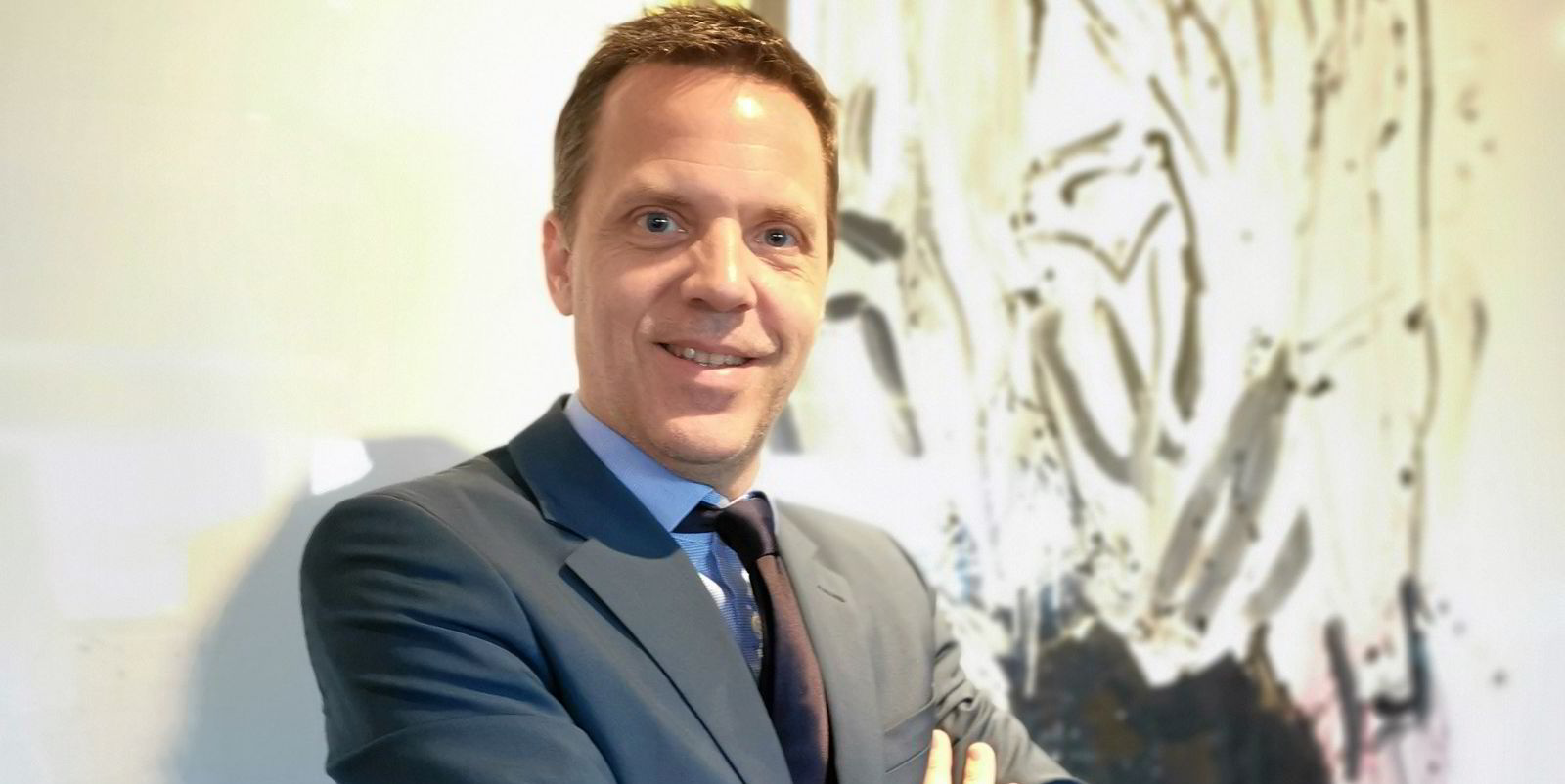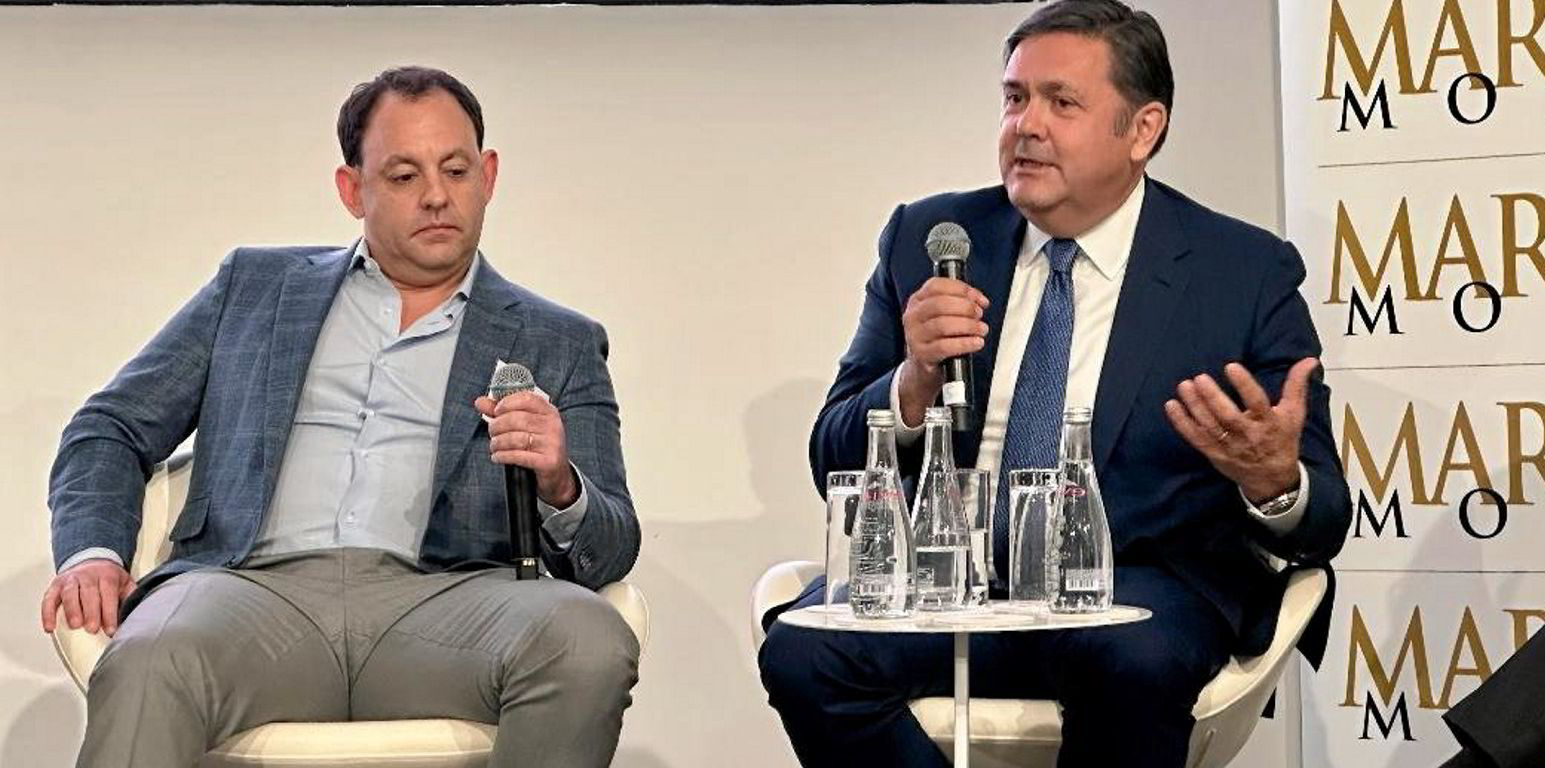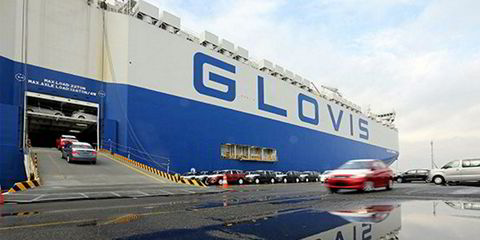A verbal brawl came out of nowhere at last week’s Marine Money Week conference in New York, when Ridgebury Tankers chief financial officer Hew Crooks took aim at the deal-making practices of investment bank the Maxim Group, as reported in detail by TradeWinds.
The back-and-forth between Crooks and Maxim shipping banker Larry Glassberg was fast and furious at times.
Crooks had solid data about Maxim client Top Ships losing 97% of its share value since March 2022 in a good market for its tankers, but he seemed to veer into hyperbole at one point when he said Top Ships’ original share price as a New York-listed company was effectively “$80trn”.

Some laughter broke out before the conversation veered off in another direction.
Intrigued, Streetwise decided to fact-check Crooks on the matter, and sure enough, he was guilty of some exaggeration.
Top Ships’ adjusted value for one share — which currently sits around $0.60 — was not in fact $80trn.
It was merely $43.37trn back on 2 August 2004, Top Ships first day on the Nasdaq exchange, according to the website Yahoo Finance.
It is the kind of number that makes the viewer blink, rub his eyes, maybe walk out of the room for a breath of fresh air and come back to the computer screen expecting to see more clearly this time.
But no, there it is again — all 14 digits.
Streetwise has put in a query to Top Ships management in a bid to find out how it is possible to lose $43.37trn in share value — minus $0.60 — even over the course of 19 years. There was no response before TradeWinds’ deadline.
But one working theory is that Evangelos Pistiolis-led Top Ships has been a serial user of reverse stock splits over its life as a public company, often when threatened with de-listing by Nasdaq over a share price that has slid below $1 for extended periods.
With such splits, a larger number of existing shares are transformed into one share with a correspondingly greater price.
The splits happened a dozen times in Top Ships’ life as a public company per Yahoo Finance, with five of them geared at between 1-for-20 and 1-for-30 shares. These splits effectively compound geometrically when an effective starting price is calculated from the current trading level.
So in other words, that Top Ships share currently worth around $0.60 once would have been priced at the $43.37trn number when giving effect to both the dilution caused by issuing large amounts of new stock, and then the multiplier effect of reducing shares through the reverse splits.
No matter how the number is calculated, there are still many, many things that are less than $43.37trn.
Streetwise made a list of some of them:
- $25.15trn: combined market capitalisation of all companies on the New York Stock Exchange at March 2023.
- $19trn: combined market cap of all companies on the Nasdaq.
- $25.46trn: GDP of the US in 2022.
- $31.46trn: US national debt burden.
- Estimated at $14trn: Global economic loss due to Covid-19.
Now Maxim cannot claim all the credit for getting Top Ships to such a figure. It appears that the bank started working with the Greek owner only around 2018.
That was after Top Ships had ceased collaborating on share deals with an outfit called Kalani Investments. It was a relationship that resulted in shareholders claiming securities fraud in a federal-court lawsuit.
The plaintiffs alleged that Top Ships engaged in a scheme called “death-spiral financing”. They described a process in which they say Kalani and later a second firm called Crede Capital Group purchased newly issued common shares at a discount and then quickly resold them in the market. This caused heavy dilution and tanked the share price between 2016 and 2018, they charged.
Top Ships kept the scheme alive through a series of reverse stock splits, they alleged.
A US judge in August 2019 found in favour of Top Ships, ruling there was no evidence of illegality, partly because Top Ships had explicitly disclosed the details and potential risks of the relevant shares sales in its public filings with US securities regulators.
At least five of the reverse splits happened during the Kalani period.

Top Ships appears to have first retained Maxim to help with an equity raise in May 2018.
Many have been telling Streetwise for a couple of years now that the Maxim shares deals are bad for shipping’s reputation in the capital markets.
But it took Ridgebury Tankers’ Crooks to have the guts to call the bank out in a public forum. Similar credit goes to Valentios “Eddie” Valentis, chief executive of Greek owner Pyxis Tankers. He spoke to Streetwise about the damage done by such deals in June 2022 without referring to Maxim or mentioning specific companies.

Maxim’s shares deals typically are dilutive and package issuance of common shares with warrants, often at low prices, inevitably driving the public shipowner clients’ share prices below the $1 level.
And then those companies resort to — you guessed it — reverse share splits to pump the price back above $1, only to do the same thing again: rinse, wash, repeat.
Other Maxim clients
Here are trading comparisons for some of the companies who have retained Maxim in the past, with recent price per share (PPS) followed by original price on the first trading day as a public company.
- Imperial Petroleum: recent close at $3.13 PPS, original price at $6 (December 2021).
- OceanPal: recent $1.62, original $7,120 (November 2021).
- Performance Shipping: recent $0.75, original $11.3m (January 2011).
- Castor Maritime: recent $0.41, original $71 (February 2019).
- Seanergy Maritime: recent $4.44, original $1.7m (January 2008).
- Globus Maritime: recent $0.90, original $141.8m (March 2008).
Maxim generally would not have done shares sales for these names prior to the point it was retained by Top Ships in early 2018, although it was hired by Seanergy Maritime as early as August 2016.
Performance Shipping is the former Diana Containerships, which was also one of the owners that worked with Kalani.
Speaking during his Marine Money conference appearance, Crooks was blunt as to his perception of the Maxim deals.
“I think it damages everyone,” he said.
“I don’t think it’s tearing down the whole market, but it’s not a help for our industry, which has struggled for a long time to make a better name for itself.”
More shipping finance news
Norway’s Yara International has pulled a plan to float spin-off Yara Clean Ammonia due to the green fuels subsidiary’s valuation. Any transaction will be delayed for an unspecified period. Click here to read.
Norway’s Hunter Group is to carry out a reverse stock split to boost its share price in Oslo. The CO2 carrier company aims to bring the stock back above the minimum NOK 1 ($0.09) level for a continued listing. Click here to read.
New York-listed Scorpio Tankers has sealed a mammoth new $1bn debt package that is tipped to accelerate its unwinding of higher-priced lease financing. Click here to read.




